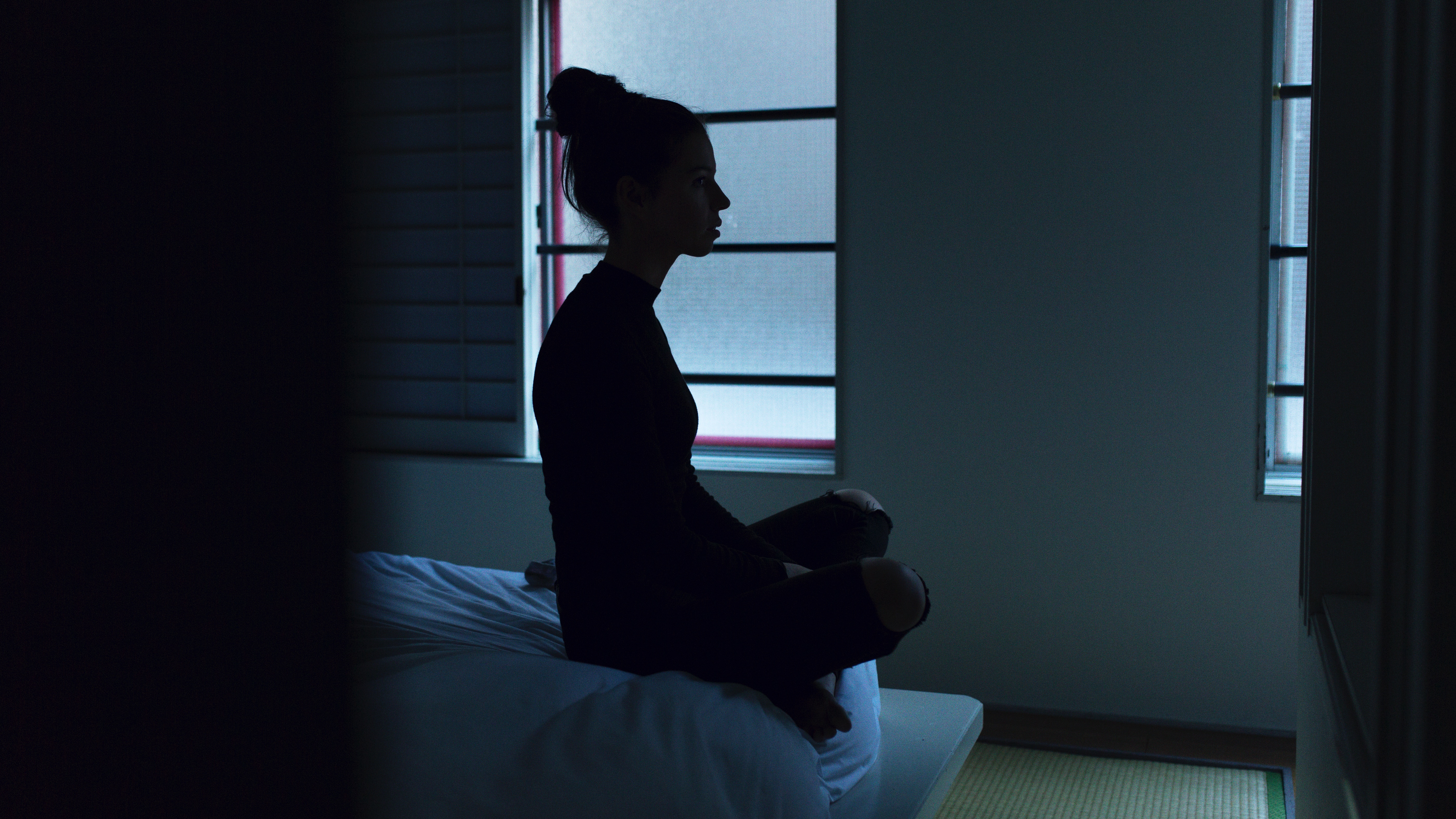Sleepless Nights? Tackling Insomnia with Ayurveda
Published on December 4th, 2018
Snooze. Snooze. Snooze. Just 5 more minutes. Sounds like a typical morning in my house. I hear the alarm going off, I don’t even remember pressing the snooze button. 5 minutes later, it goes off again, and then again, still no getting out of bed. Before I know it, I’ve overslept yet again! I jump out of bed and run into the bathroom with my heart racing because I just woke up at the time I should be leaving for work.
Over 30% of Americans suffer from daily fatigue and insomnia. Trouble sleeping has become a serious cause of chronic illnesses like cardiovascular disease and diabetes. Now, Americans have higher stress levels and more demanding schedules. Running from meeting to meeting, making it to a workout class on time, getting dinner on the table, putting the kids to sleep at 8pm sharp, being too worried and stressed to fall asleep, then beginning the entire vicious cycle again. The time pressures associated with our modern lifestyles have wreaked havoc on our body.
So why is sleep such a big deal? You may think…I have my coffee, my energy drink, and even my Adderall in the morning and I’m FINE. Though stimulants are not a substitute for good quality sleep and sleep is not a luxury, we have turned both sleep into a luxury saved for the weekends and stimulants into the tonic needed to function on sleep deprivation. And this has become a normal part of American life. Day in and day out…elevated stress and cortisol levels and our bodies running on artificial substances. Then we turn to sleeping pills at night if we’re unable to fall asleep.

Sounds healthy and great for longevity, doesn’t it?
There is a direct correlation between sleep and our physical and mental health. Based on Ayurveda, the oldest healing system which originated in India over 5000 years ago, sleep is the time when our bodies heal and repair. Our bodies are brought back into balance and this leads to more mental clarity and energy during the day. Snatching that away creates accumulation of toxins (ama) in the body.
Have you ever experienced any the following?
- fatigue, lethargy
- anxiety
- bad breath
- brain fog
- headaches
- bloating, flatulence, constipation
- moodiness and irritability
- joint aches and pains

I know I have! According to Ayurveda, when sleep is compromised, toxins (ama) in the body increase causing many of the above symptoms. The goal is to keep the body balanced through diet, lifestyle modifications, and exercise.
In order to take responsibility for our own health, we need to learn our body inside and out. Ayurvedic principles states that there are 3 Doshas (inherent flaws) present within each of our bodies in varying amounts. Each one of us has a predominant Dosha type, whether it’s Vata (air and space), Pitta (fire and water), or Kapha (water and earth). Don’t know your type? Take my Dosha Quiz to find out! By maintaining balance to your Dosha, many diseases including trouble sleeping can be prevented. Ayurveda identifies 3 types of sleep concerns, each caused by the aggravation of a different Dosha.
Difficulty falling asleep – Vata aggravation
Difficulty staying asleep – Pitta aggravation
Sleeping well but still waking up tired – Kapha aggravation
This is actually the perfect time to talk about sleep issues because during the Vata-governed season of fall, the Vata-element within us tends to spike and this aggravation to the Vata is the most common cause of sleep related disorders. For those of us that are already predominantly, Vata-type individuals, difficulty falling asleep becomes a significant problem around this time of year. If you don’t know your type, take the Dosha Quiz to find out.

Difficulty Falling asleep (Vata Imbalance):
Since Vata is composed of air and space – it is light, dry, quick, and airy. It controls movement within us, our digestion, and our thinking. When it is balanced, we feel great. We feel energetic and focused. When it is aggravated by mental stress, we become anxious, hyperactive, and are unable to wind down and get ourselves to fall asleep.
How to restore balance:
- Eat 3 warm, cooked meals throughout the day at consistent times. Avoid salads and raw foods.
- Avoid caffeine and other stimulants at least 6 hours before bedtime.
- Avoid screen time at least 3 hours before bedtime.
- Eat a light dinner before 6pm – a vegetarian dinner consisting of easy to digest vegetables and grains is best in the evening.
- Increase your intake of naturally sweet, sour, and salty tasting foods.
- Drink warm milk with a pinch nutmeg or cardamom before bed, both spices are grounding and help pacify Vata.
- Have a cup of Triphala tea approximately 1 hour before bed. Read more about the benefits of Triphala here.
- Massage the scalp and soles of the feet with warm sesame oil.
- Follow a consistent daily routine during the day and at night, one that works for you and your family
- Do something spiritual like a guided meditation.
- Go to bed by 10pm and wake up by 6am.

Difficulty Staying Asleep (Pitta Imbalance):
Since Pitta is composed of fire and water, Pittas usually experience fiery, vivid dreams and this can sometimes disturb their sleep. They prefer light bedding as they tend to overheat. Usually, Pittas have no trouble falling asleep but when there is an increased amount of Pitta, they tend to wake up between 2am and 4am. Normally, Pitta is elevated in the body between 10pm and 2am and so if the Pitta is already imbalanced, this can activate the mind, provide a surge of energy, and prevent any prospect for sleep.
How to restore balance:
- Avoid eating hot and spicy foods.
- Eat a filling dinner before 6pm.
- Increase your intake of sweet, bitter, and astringent foods (salads, ice cream, mint herbal tea).
- Massage the scalp and soles of the feet with warm coconut oil or ghee.
- Follow a consistent daily routine. Read more about my daily ayurvedic routine here.
- Do pranayama and meditation prior to sleeping.
- Go to bed by 10pm and wake up by 6am.
Feeling Tired throughout the Day (Kapha Imbalance):
Kapha is governed by earth and water and thus the qualities it exhibits in the body are that of stickiness, heaviness, and slowness. A person who is predominantly Kapha-type usually has a large build and trouble with weight control. They may suffer from sleep apnea which contributes to day time sleepiness. They may also sleep too well like 9-10 hours a night and then wake up feeling lethargic. They then require stimulants like coffee to get themselves going.
How to restore balance:
- Wake up before 6am.
- Vigorous exercise between 6am and 10am.
- Do a morning oil body massage with olive/mustard oil.
- Drink only warm water throughout the day.
- Eat a light, warm dinner before 6pm. Baked and sautéed foods are preferred.
- Increase your intake of spicy foods.
- Limit your intake of heavy, sweet, and salty foods.
- Follow a consistent daily routine.
- Go to bed by 10pm.

If all of this Vata-Pitta-Kapha talk is making you go “what is she talking about?!”, just focus on the basics and begin by making lifestyle changes first. The understanding of Ayurveda will follow.
One of the most important components of getting restful sleep is developing a daily routine with a consistent wake, sleep, and meal times. This is a constant amongst the 3 Doshas. Our bodies thrive on routine and as we get older, due to social engagements and other stressors, our routines go out of whack and affect the health of our mind and body.
My 20 month old, V, wakes up at the same time every day, has set meals times, and has a pretty consistent bedtime. I’ve noticed that his appetite is great and his bowel movements happen around the same time every day. He has 2 consistent bowel movements per day but if we take him out somewhere away from his normal environment during the time he typically has his bowel movements, he will not have them. Then his appetite is off, he has a smelly poop, and is overall just cranky. We’ve been noticing this for months now and it happens every single time we have interfered with his routine. It’s the running joke in our house that V doesn’t like to poop in public. But it shows us how sensitive the human body is to changes and how important maintaining a consistent routine is.

By incorporating a daily Ayurvedic routine and making diet and lifestyle changes, you will definitely see improvement in your sleep. Of course, each person is different and if you think that you have a different underlying cause to your insomnia, it is best to see an Ayurvedic Practitioner to develop a customized treatment plan specifically geared towards your concerns.
Hope this post helps you sleep better!
Namaste.


0 Comments